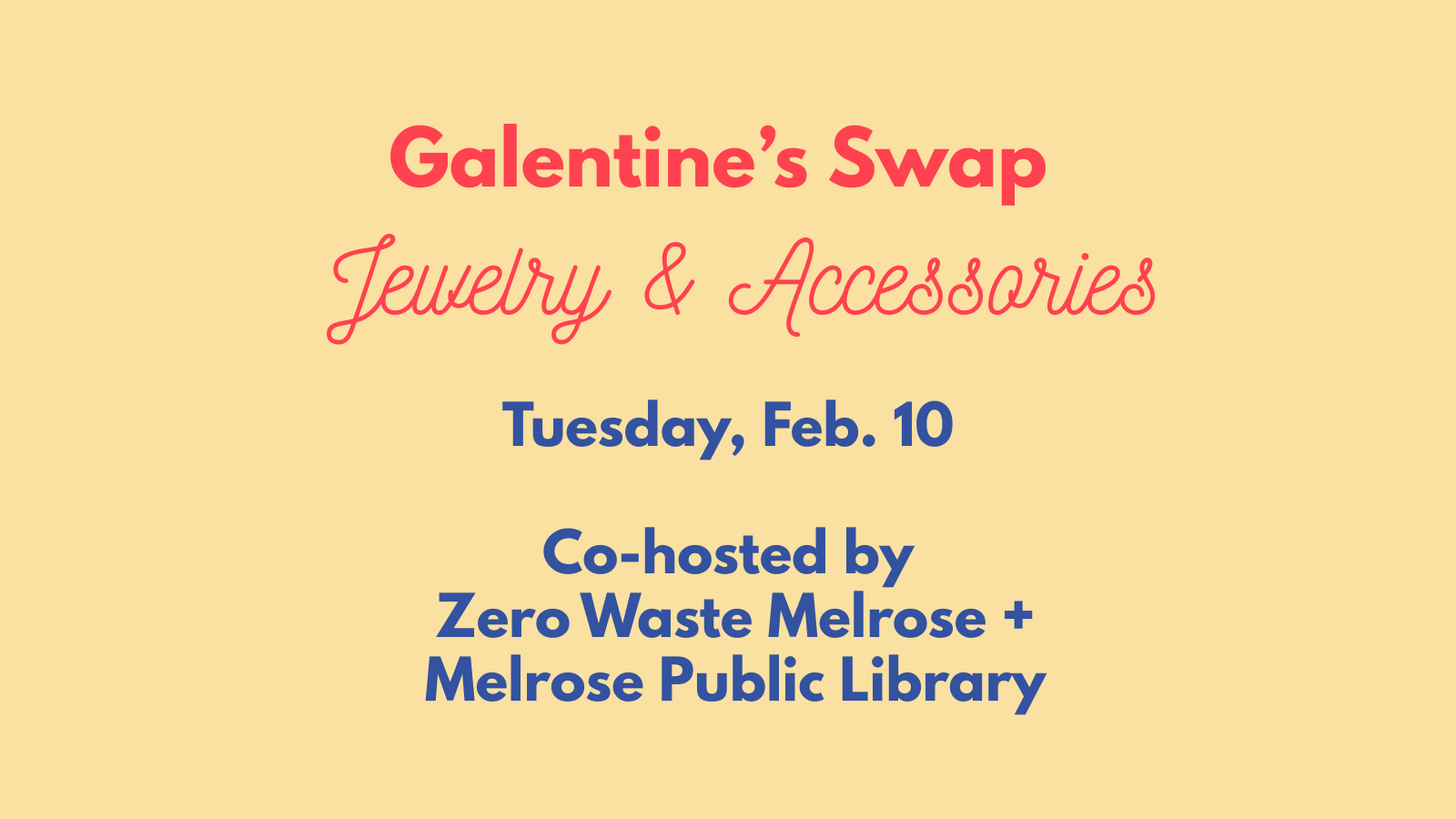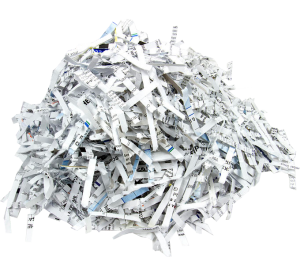Polystyrene Ordinance
Starting in January 2022, foam and rigid polystyrene will be banned as food and beverage packaging in Melrose in the largest retailers. On July 1, 2022, the law takes effect across all retailers in Melrose.
The polystyrene ordinance is another example of how City of Melrose is using laws to protect public health and the environment.
New implementation date
The roll-out of the law was delayed due to the coronavirus pandemic. Originally planned for a 2020 implementation, Zero Waste Melrose worked with the City to delay the implementation until January 2022 (large businesses) and July 2022 (smaller businesses). The extended implementation time is needed for outreach to businesses and the general public, which was not feasible on the original rollout timeline due to the pandemic.
Ordinance FAQs
Check out City of Melrose for detailed information about the ordinance, including:
How do businesses comply with the ordinance
How to identify if a container is made of polystyrene
Examples of polystyrene containers and alternatives that are acceptable under the new ordinance.
Why did Melrose ban polystyrene?
Polystyrene is a health and environmental hazard:
Health: Polystyrene is based on styrene, a neurotoxin and probable carcinogen based on benzene. Styrene leaching increases with temperature and with certain foods (alcohol, oils or Styrofoam cup trash fat). Other risks include synthetic chemical additives such as colorants.
Environment: Foam polystyrene is often mistaken as food by both domesticated and wild animals. Birds may also use foam for nesting material. Untold numbers of animals die per year by ingesting polystyrene and other plastic items. It does not biodegrade, it just fractures into smaller and smaller bits called “microplastics.” These small particles present the greatest long-term danger, as these particles displace food supplies in the world’s oceans. Once microplastics enter our oceans, they will stay there virtually forever, because they persist and their removal is not possible.
Polystyrene is not accepted in curbside recycling programs in Massachusetts (and most other states).
Because polystyrene foam is 95% air and often contaminated with food residue, recycling is impractical. The rigid form even when collected curbside is seldom recycled.
Melrose joins many other communities in banning polystyrene.
Bans on polystyrene food items are in place all over the world: in major cities such as Oakland, San Francisco, and Chicago; in the neighboring states of Maine, New York, and Vermont; and countries such as China, India, and Taiwan. Within Massachusetts, 50 cities and towns across 12 counties representing over one million people have already banned some form of polystyrene
Key points about the law
Applies to both foam (Styrofoam®) and rigid polystyrene
Food and Beverages can no longer be sold in containers, bowls, plates, trays, cartons, or cups made of polystyrene. Includes food/beverage consumed on-premises, takeout, or sold for consumption off premise.
Packaging: Polystyrene foam or rigid packing material can’t be sold in Melrose.
The law strongly encourages reusable food service ware. If disposables are used, law encourages biodegradable, compostable, or recyclable food service ware.
Exemptions: The law does not apply to food or beverage not packaged at the store. (E.g., raw meat that the store buys on foam trays). Also exempted are non-food products that arrive pre-packed in polystyrene.
Melrose’s ban on foam and rigid polystyrene takes effect in 2022.
The Polystyrene Ordinance passed at the full City Council meeting on December 2, 2019. Read the amended ordinance here:
Amend Chapter 198 by adding Article VII — Sustainable Food Containers and Packaging; further add Section 198-13 “Use of Sustainable Food Containers and Packaging,” as follows:
Section 198-12 Sustainable Food Containers and Packaging
(a) Short title. This section may be cited as the “Sustainable Food Containers and Packaging Ordinance” of the City of Melrose.
(b) Declaration of findings and policy — Scope
The City Council hereby finds that the prohibition on the use of foam polystyrene food and packaging containers by food service establishments and the sale or use of these products by any business in the City of Melrose is a public purpose that protects the public health, welfare and environment, advances solid waste reduction, protects waterways and aids the City in its fight against climate change.
(c) Definitions
The following words shall, unless the context clearly requires otherwise, have the following meanings:
“Biodegradable” means that which is entirely made of organic materials such as wood, paper, bagasse or cellulose; or bioplastics that meet the American Society for Testing and Materials (ASTM) D7081 standard for Biodegradable Plastics in the Marine Environment or any other standard that may be developed specifically for an aquatic environment and are clearly labeled with the applicable standard.
“Compostable” means bioplastic materials certified to meet the American Society for Testing and Materials International Standards D6400 or D6868, as those standards may be amended. ASTM D6400 is the specification for plastics designed for compostability in municipal or industrial aerobic composting facilities. D6868 is the specification for aerobic compostability of plastics used as coatings on a compostable substrate. Compostable materials shall also include products that conform to ASTM or other third-party standards (such as Vincotte) for home composting. Any compostable product must be clearly labeled with the applicable standard on the product.
“Department” means the Melrose Board of Health of the City of Melrose.
“Director” means the Director of the Board of Health of the City of Melrose.
“Disposable Food Container” means all food and beverage containers, bowls, plates, trays, cartons, cups, designed for one-time or non-durable uses on or in which any food vendor directly places or packages prepared foods on the food provider’s premises or which are used to consume foods. This includes, but is not limited to, food service ware for takeout foods and leftover food from partially consumed meals prepared at food establishments.
“Foam polystyrene” means a non-biodegradable petrochemical thermoplastic made from aerated forms of polystyrene and includes several methods of manufacture. Expanded polystyrene (EPS) or extruded polystyrene (XPS) are forms of polystyrene. “Styrofoam” is a Dow Chemical Co. trademarked form of extruded polystyrene and is commonly used to refer to foam polystyrene. These are generally used to make insulated cups, bowls, trays, clamshell containers, meat trays, foam packing materials and egg cartons. The products are sometimes recognized by a #6 resin code on the bottom.
“Food Establishment” means a business or governmental establishment that stores, prepares, packages, serves, vends, or otherwise provides food for human consumption, including but not limited to any establishment requiring a permit to operate in accordance with the state food code.
“Packing material” means polystyrene foam used to hold, cushion, or protect items packed in a container for shipping, transport, or storage. This includes, without limitation, packing “peanuts”, and shipping boxes, coolers, ice chests, or similar containers made, in whole or in part, from polystyrene foam that is not wholly encapsulated or encased within a more durable material.
“Prepared food” means any food or beverage packaged or prepared for consumption on the food provider’s premises, using any cooking or food preparation technique or provided for further food preparation.
“Recycle” refers to material that can be sorted, cleansed, and reconstituted using Melrose’s curbside municipal collection programs for the purpose of using the altered form in the manufacture of a new product. “Recycling” does not include burning, incinerating, converting, or otherwise thermally destroying solid waste.
“Retail establishment” means a business establishment engaged in the retail sale of goods directly to consumers.
“Reusable” refers to products that will be used more than once in its same form by a food establishment. Reusable food service ware includes tableware, flatware, food or beverage containers, packages or trays, such as, but not limited to, soft drink bottles and milk containers that are designed to be returned to the distributor.
“Rigid polystyrene” means a non-biodegradable petrochemical thermoplastic made from a non-aerated form of polystyrene. Also known as “oriented polystyrene,” the material is generally clear or solid in appearance and is used to make clear clamshell containers, cups, plates, straws, lids and utensils. The products are sometimes recognized by a #6 resin code on the bottom.
(d) Prohibited use and distribution of food ware and packaging.
(1) Food establishments are prohibited from dispensing food or beverages to any person in disposable food containers made from foam or rigid polystyrene.
(2) All food establishments are strongly encouraged to use reusable food service ware in place of using disposable food service ware for all food served on the premises. Food establishments using any disposable food service ware are strongly encouraged to use biodegradable, compostable, reusable or recyclable food service ware.
(3) Retail establishments are prohibited from selling or distributing disposable food containers made from foam or rigid polystyrene to customers.
(4) Retail establishments are prohibited from selling or distributing polystyrene foam or rigid packing material to customers.
(e) Effective date. This section shall take effect on July 1, 2020.
(f) Enforcement
(1) Fine. Any food or retail establishments which violates any provision of this section or any regulation established by the Director shall be liable for a fine as follows: First offense, warning; second offense, $100.00 and subsequent offenses, $100.00. Each day a violation continues shall constitute a separate offense.
(2) Whoever violates any provision of this section or any regulation established by the Director may be penalized by a noncriminal disposition as provided in G.L. c. 40, Sec. 21D.
(3) This section shall be enforced by the Director of the Health Department, or his or her designee.
(g) Severability
Each separate provision of this section shall be deemed independent of all other provisions herein, and if any provision of this section be declared to be invalid by a court of competent jurisdiction, the remaining provisions of this section shall remain valid and enforceable.
Upcoming Events:
From the Blog:
Contact
Feel free to contact us with any questions. Or if you are interested in joining our efforts — Zero Waste Melrose welcomes all types of volunteers, including those who only want to volunteer a few times per year and those who want to be very active by attending monthly meetings and participating in many activities.
Joining the committee is a great way to play an active role in the community and make a difference in reducing our environmental impact.
Meetings
Zero Waste Melrose meets the first Thursday of every month at 7 pm via Zoom. Please fill out the form to receive more information via email including the monthly Zoom link to attend the virtual meeting.















